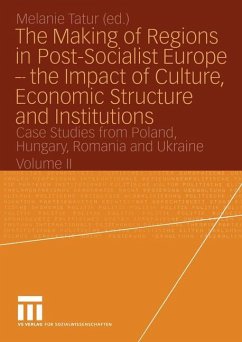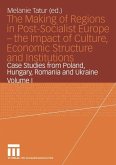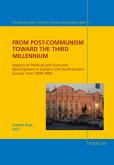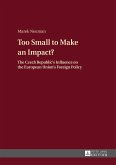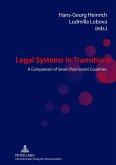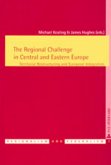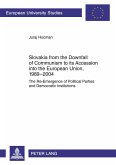The study combines the debate on regionalisation with transformation research. It regards the formation of regional actors and institutions not primarily from the perspective of formal organisational structures, but also a consequence of the macro-political transformation regime and region-specific opportunity structures. These structures include evonomic restrictions, historical legacies and cultural resources that are conveyed in present informal mechanisms, personal networks, discourses, and development strategies.
The qualitative empirical approach offers a vivid picture of regional developments. The two volumes cover Malopolska and Silesia (Poland), Hajdu-Bihar County (Hungary), Timis County (Romania), and the L'viv and Donetsk regions (Ukraine).
The qualitative empirical approach offers a vivid picture of regional developments. The two volumes cover Malopolska and Silesia (Poland), Hajdu-Bihar County (Hungary), Timis County (Romania), and the L'viv and Donetsk regions (Ukraine).

